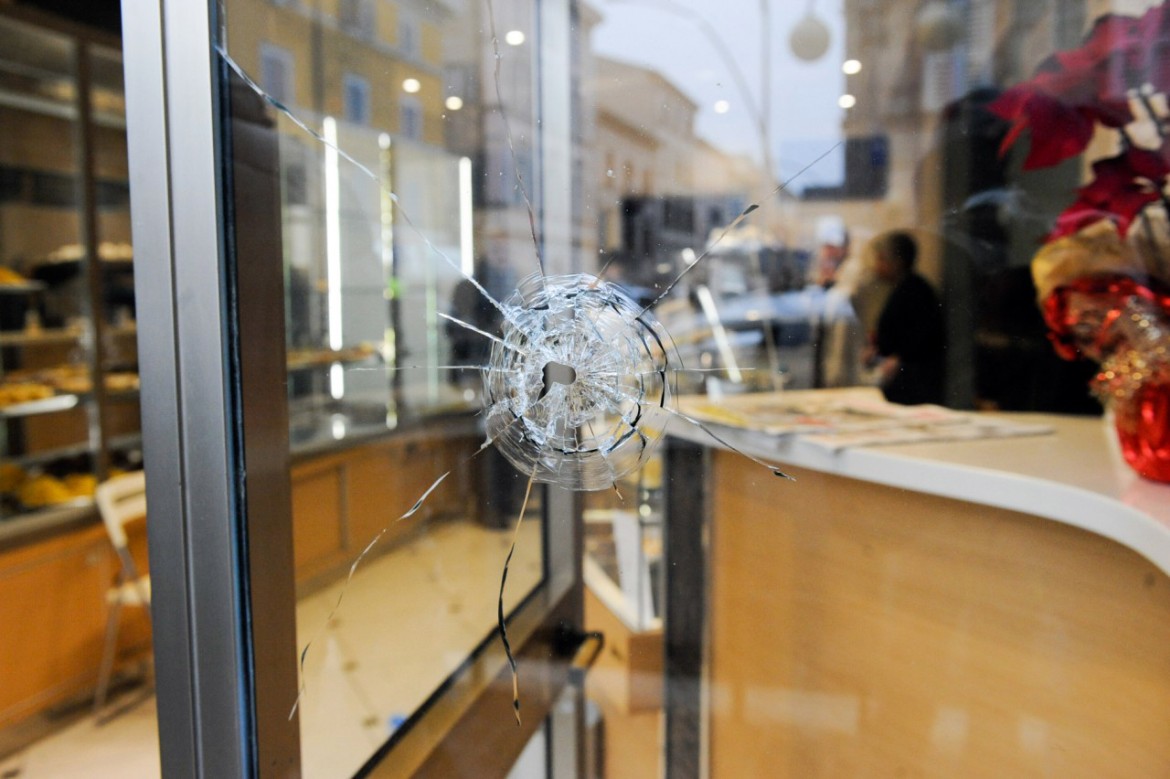Commentary
It’s called terrorism
Macerata is, in the most proper sense, a terrorist act, no different from those organized by ISIS or its minions in Barcelona, London and Brussels, turning defenseless people into targets and causing entire cities to close down in terror.

Suddenly, there was darkness. On Saturday in Macerata, Italy reached one of the darkest points in its recent history, one in which our worst nightmares seem to have come true, reminiscent of the movie Hunting Scenes from Bavaria. The mad shooter targeting people based on their ethnicity, the bodies falling to the ground one after another, the car racing in search of new victims of color, the whole city paralyzed with everyone locked in their houses—all this tells us we have descended one more step into the abyss.
It is not the first case of bloody racist violence in Italy. On Dec. 13, 2011, in Piazza Dalmazia in Florence, two young Senegalese, Samb Modou and Diop Mor, were cut down by the bullets from Gianluca Casseri’s .357 Magnum. Casseri was a fascist and member of CasaPound, who, hunted by the police, committed suicide shortly thereafter. And, just a year and a half ago, there was the murder of Emmanuel Chidi Namdi, a Nigerian, butchered by a far-right madman as he tried to defend his girlfriend, in Fermo, not far from Macerata.
But the terror in Macerata goes a step further. For one, because of the manner and motive of the crime: the intent to avenge the terrible death of Pamela Mastropietro, in the typical manner that led to lynchings in Jim Crow America, indiscriminately targeting the alleged compatriots of the alleged murderer (and even ignoring the fact that the quick arrest of the latter was due to the valuable testimony of a witness who was not Italian, but himself African).
Then there is the perpetrator himself: a fascist and a failed candidate for Lega Nord, who had been close to Forza Nuova and CasaPound just like Casseri, but who, unlike him, did not commit suicide, but instead staged a theatrical performance, climbing on the pedestal of a war memorial wrapped in the Italian flag, as if making a proclamation to the nation.
He was, furthermore, promptly met with a shocking level of support on social media, which is the third aspect that makes Macerata something beyond everything that came before: the keyboard thugs who are proclaiming “Make Luca Traini a saint immediately!” are inviting others to do the same, and are claiming that “this is only the beginning,” placing the blame both for the death of Mastropietro and for the reaction of the Corridonia “vigilante” on “those who open the door to the invasion” by Africans.
This argument is fundamentally the same as Matteo Salvini’s initial reaction, who is leading his party’s bid in the coming elections under the banner of a ferocious campaign of hatred.
We cannot ignore this any longer. The event in Macerata is not an isolated incident, nor is it simply the work of one troubled man. Macerata happened in an environment that has degraded appallingly. We are speaking of a true anthropological debasement of our country. It comes after the obscene utterances of the mayor of Gazzada on Holocaust Remembrance Day, in the middle of Lega Nord country. It comes after the online posting of a disturbing photographic collage in which the severed head of President of the Chamber of Deputies Boldrini appears under the words “throat cut by an angry Nigerian, that is the end he deserves, so he can appreciate the customs of his friends.” It comes after Boldrini was burnt in effigy by the “Young Padanians” of Busto Arsizio (the youth wing of the Lega Nord), and after a long string of statements, acts, and orders by Lega Nord mayors, and so many affronts committed by fascist groups that we have lost count.
Macerata tells us that the effects of the many “entrepreneurs of hate,” whether wearing fleece jackets or white shirts, are spilling out beyond the realm of mere propaganda, and giving rise to true and proper acts of terrorism. Because what we have seen in Macerata is, in the most proper sense, a terrorist act, no different from those organized by ISIS or its minions in Barcelona, London and Brussels, turning defenseless people into targets and causing entire cities to close down in terror. We should treat the terrorist of Macerata exactly the same as them.
And the democratic world should treat the event as what it is, and organize an immediate mass response, in the very place where the attack occurred, mobilizing those who still believe that this drift can be stopped, and that the night of horrors from the past has not yet fallen on our country. If not now, when?
Originally published at https://ilmanifesto.it/si-chiama-terrorismo/ on 2018-02-04
